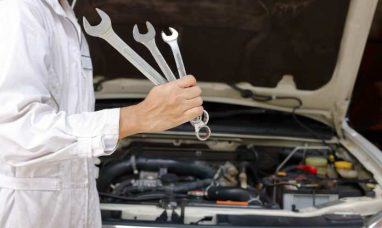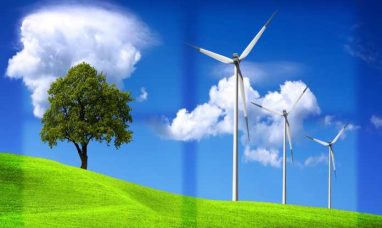PALO ALTO, Calif., April 10, 2024 /PRNewswire/ — In a joint study issued today, EPRI and NRDC (Natural Resources Defense Council) found that electric vehicle (EV) efficiency improvements have the potential to significantly reduce future electric infrastructure buildout, energy usage, and consumer costs over the next three decades as the U.S. works toward meeting net-zero targets by 2050.
According to the study, by 2050, continued advances in EV efficiencies could:
- Reduce electricity consumption per mile in half;
- Lower electricity demand by hundreds of terawatt-hours annually and decrease associated grid buildout, reducing peak demand by nearly 300 gigawatts; and,
- Provide consumer energy cost savings of more than $200 billion annually if accomplished without raising vehicle costs.
Key vehicle energy efficiency measures evaluated include reduced weight without sacrificing size or safety, reduced aerodynamic drag, improved battery and powertrain efficiency, and higher battery energy density. According to the study, efficiency gains create opportunities for lower vehicle ownership costs and better performance. Also, more efficient battery technology could lessen supply chain concerns by reducing the quantity of raw materials needed to produce batteries.
“Transportation energy efficiency gains can provide many benefits to society,” said Rob Chapman, EPRI senior vice president of Energy Delivery and Customer Solutions. “This study demonstrates that continued advances in EV efficiency have the potential to substantially reduce physical grid and charger buildout, which could further decrease consumer energy bills and help electric companies keep better pace with accelerating customer demand. Lower cost of vehicle ownership and less need for home charging electrical upgrades can make electric mobility more accessible to all communities.”
The study applied EPRI’s U.S. REGEN model to assess consumer energy choices and energy system buildout under four scenarios that varied the efficiency characteristics of light-, medium-, and heavy-duty on-road vehicles. The four scenarios, developed by a team of experts including EPRI, NRDC, and RMI cofounder Amory Lovins, include a case in which today’s technology doesn’t improve over time, an intermediate scenario with improved technology at a rate roughly consistent with historic efficiency trends, and two scenarios reflecting accelerated trends toward advanced efficiency gains.
“Vehicle electrification is a critical strategy for meeting clean air and safe climate goals,” said Luke Tonachel, senior strategist for transportation at NRDC. “If we do it most effectively and efficiently, we can add to the environmental benefits by minimizing power demand from electric vehicles, right sizing the electrical grid and charging infrastructure, and minimizing battery materials. Technologies to improve electric vehicle efficiency are known, and it is now time for the electric and vehicle industries, policymakers, and other stakeholders to come together on solutions to promote their use.”
To read the full paper, visit: Valuing Improvements in Electric Vehicle Efficiency (epri.com)
Contact:
Samantha Gilman
Communication Manager
980-348-8783
sgilman@epri.com
Mark Drajem
Program Media Director
(202) 297-5444
Mdrajem@nrdc.org
About EPRI
Founded in 1972, EPRI is the world’s preeminent independent, non-profit energy research and development organization, with offices around the world. EPRI’s trusted experts collaborate with more than 450 companies in 45 countries, driving innovation to ensure the public has clean, safe, reliable, affordable, and equitable access to electricity across the globe. Together, we are shaping the future of energy.
About NRDC
NRDC (Natural Resources Defense Council) is an international nonprofit environmental organization with more than 3 million members and online activists. Established in 1970, NRDC uses science, policy, law, and people power to confront the climate crisis, protect public health, and safeguard nature. NRDC has offices in New York City, Washington, D.C., Los Angeles, San Francisco, Chicago, Bozeman, MT, Beijing and Delhi (an office of NRDC India Pvt. Ltd). Visit us at http://www.nrdc.org and follow us on Twitter @NRDC.
![]() View original content to download multimedia:https://www.prnewswire.com/news-releases/study-ev-efficiency-improvements-can-reduce-future-electric-infrastructure-and-consumer-costs-302112571.html
View original content to download multimedia:https://www.prnewswire.com/news-releases/study-ev-efficiency-improvements-can-reduce-future-electric-infrastructure-and-consumer-costs-302112571.html
SOURCE EPRI

Featured image: Megapixl © Tudorvintiloiu









